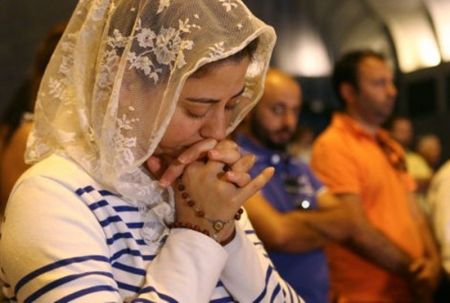Hungary rebuilding churches, Christian towns in Middle East to strengthen Christianity worldwide

Amid the international community’s lack of response to the ongoing severe persecution of Christians in the Middle East, the small nation of Hungary is spending millions of dollars in the region to help rebuild churches and Christian communities.
This central European country is home to less than 1% of the world’s population, but it has spent at least $40 million since 2017 helping persecuted Christians, according to Fox News, which spoke to Peter Szijjarto, Hungary’s Minister of Foreign Affairs and Trade.
“We give the money directly to the churches, to the church communities. We have rebuilt 33 torn-down Christian churches in Lebanon, for example,” Szijjarto was quoted as saying.
Hungary, which affirms its Christian foundations in its constitution that was ratified in 2011, has also rebuilt towns and schools for the Christian communities in the Middle East. Hungarian funds have been used to rebuild 1,000 homes on the Ninevah Plains in Iraq, according to Catholic News Service.
“Under current circumstances, when we are faced with tremendous historic challenges ahead of us, ahead of the European Union, someone has to speak openly,” Szijjarto said. “And this road is taken by us currently.”
Last month, Hungary’s Prime Minister Viktor Oban acknowledged in a speech that the Christian culture was under attack. “A whole culture is under organized attack, our culture and our civilization. Not only in Africa, not only in the Middle East, but here, too, in Europe, the land of, so far, the most successful Christian culture.”
Orban, who is serving for a third consecutive term, has been criticized for being vocal about conservative issues.
Szijjarto defended him in his interview with Fox News. “If a nation is not proud of its national identity, or if it does not stick to historic cultural and religious heritage, then that country and that nation will not be strong for sure because it loses the anchor,” he said.
“In global politics, the fact that Christians are being persecuted is being ignored,” Szijjarto said last September, according to CNS. He said his government was “fighting against the perception that Christianophobia would be the last acceptable form of discrimination.”
Szijjarto added that while Muslim leaders speak enthusiastically about the plight of their mistreated people, Christians shy away from highlighting the persecution of Christians. “The international community is absolutely not sensitive” to Christian persecution, and prefers to address issues of “religious minorities,” he said.
In its 2020 World Watch List, leading Christian persecution watchdog Open Doors USA released its annual data report, saying this year highlights a drastic increase in attacks against Christian buildings and the imprisonment of Christians.
At least 2,983 Christians were killed for faith-related reasons during the last reporting period (Nov. 1, 2018, to Oct. 31, 2019). That is an average of eight Christians killed per day. The data also showed that about 260 million Christians experience “high levels of persecution” in the top 50 countries on the list.
The report stated that 9,488 “churches or Christian buildings” — or an average of 25 per day — were attacked during the 2019 reporting period. The number of Christians detained without trial, arrested and imprisoned increased from 2,625 in the 2019 report to 3,711 in the 2020 report.
Last year, some media outlets, including ProPublica, criticized the U.S. Agency for International Development for giving a grant to help restore the Nineveh Plains and strengthen communities victimized by the Islamic State terrorist group, claiming that USAID could be in violation of the Establishment Clause of the U.S. Constitution for “favoring” Iraqi Christian groups for grants in a predominantly Muslim country.
However, some religious freedom advocates said they felt that criticism of USAID funding going to these groups was an attempt to turn America’s bipartisan desire to aid religious minority communities decimated by IS and on the verge of extinction into a “partisan” issue.
“It is irrational, immoral and inconsistent with international human rights theory and policy to argue that the United States should not be helping Christians or a religious group targeted with religious genocide by ISIS,” international human rights lawyer Nina Shea, a senior fellow with the conservative think tank Hudson Institute, told The Christian Post at the time. “Their conclusion is that the U.S. should not be helping religious genocide survivors because they are a religious group even though they were targeted for religious reasons.”
Before the Trump administration came to power in 2017, USAID funding for Iraq was funneled through the United Nations. But many advocates spoke out about how aid funding that was sent to the U.N. was not making its way to help thousands of displaced Christians.





















